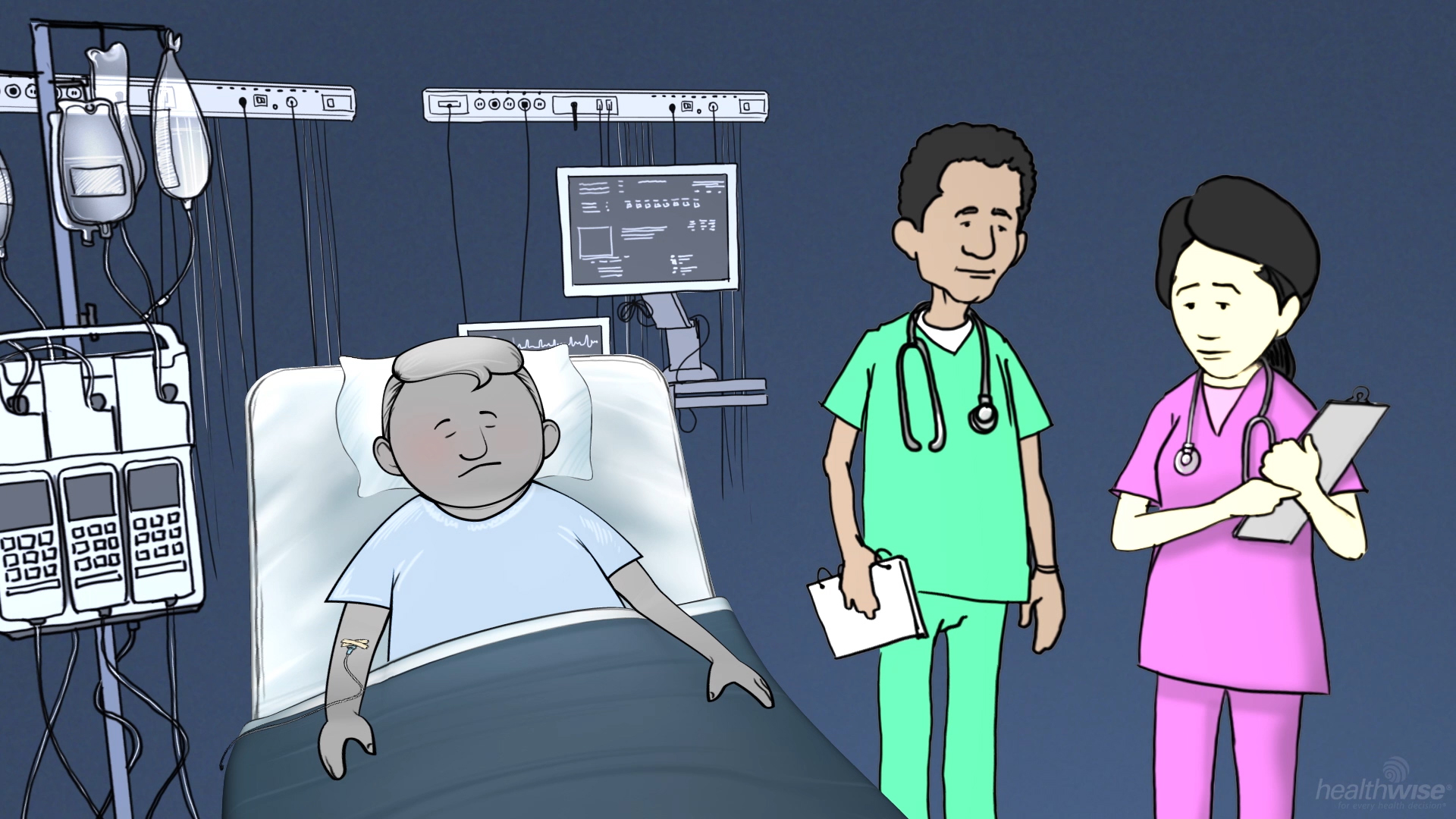Sepsis
Topic Overview
What is sepsis?
Sepsis is a life-threatening reaction to an infection. It causes inflammation across large areas of the body and can damage tissue and organs.
Sepsis requires immediate care in a hospital.
Severe sepsis is called septic shock. It often causes extremely low blood pressure, which limits blood flow to the body. It can cause organ failure and death.
What causes sepsis?
Most of the time, sepsis is caused by a bacterial infection. A long-term or a sudden illness can cause sepsis. An injury or a reaction to surgery can also cause it.
Sepsis can occur in people of any age. But it is more common in infants, older adults, and people who have a compromised immune system that cannot fight infection. Sepsis can develop very quickly.
What are the symptoms of sepsis?
Sepsis causes a combination of symptoms. Symptoms may include breathing problems, a fast heartbeat, chills, cool clammy skin, skin rashes, and shaking. Other symptoms may include a fever or low body temperature, confusion, and low blood pressure.
If you are concerned about sepsis, go to the hospital immediately. Tell them you are concerned about sepsis.
How is sepsis diagnosed?
Your doctor will ask you about your symptoms and do tests, including blood tests. You may get an X-ray or CT scan to help find the infection.
How is it treated?
You might need to be treated in an intensive care unit (ICU) for several days or weeks. An ICU is a part of the hospital where very sick people get care.
Equipment in the ICU can support your body. That includes your breathing, circulation, fluids, and help for organs like the kidneys and heart. If you need help breathing, a ventilator may be used.
Doctors will treat sepsis with medicine to treat infection. They will try to find the infection that led to sepsis.
Machines will track vital signs, including temperature, blood pressure, breathing rate, and pulse rate. You'll get fluids through an IV and may get strong medicine to help raise your blood pressure.
How can you prevent sepsis?
Here are some ways to help prevent infections that could lead to sepsis:
- Try to avoid colds and flu. If you are around people who have a cold or the flu, wash your hands often. And get a flu vaccine every year.
- Get the pneumococcal vaccine (to prevent pneumonia, meningitis, and other infections). If you have had one before, ask your doctor if you need another dose.
- Clean any wounds or scrapes.
- Do not smoke or use other tobacco products. When you quit smoking, you are less likely to get a cold, the flu, bronchitis, and pneumonia. If you need help quitting, talk to your doctor about stop-smoking programs and medicines. These can increase your chances of quitting for good.
Credits
ByHealthwise Staff
Primary Medical Reviewer E. Gregory Thompson, MD - Internal Medicine
Adam Husney, MD - Family Medicine
Specialist Medical Reviewer Elizabeth T. Russo, MD - Internal Medicine
Kathleen Romito, MD - Family Medicine
Current as ofNovember 18, 2017
- Top of Page
Next Section:
Credits
Previous Section:
Topic Overview- Top of Page
Current as of: November 18, 2017

